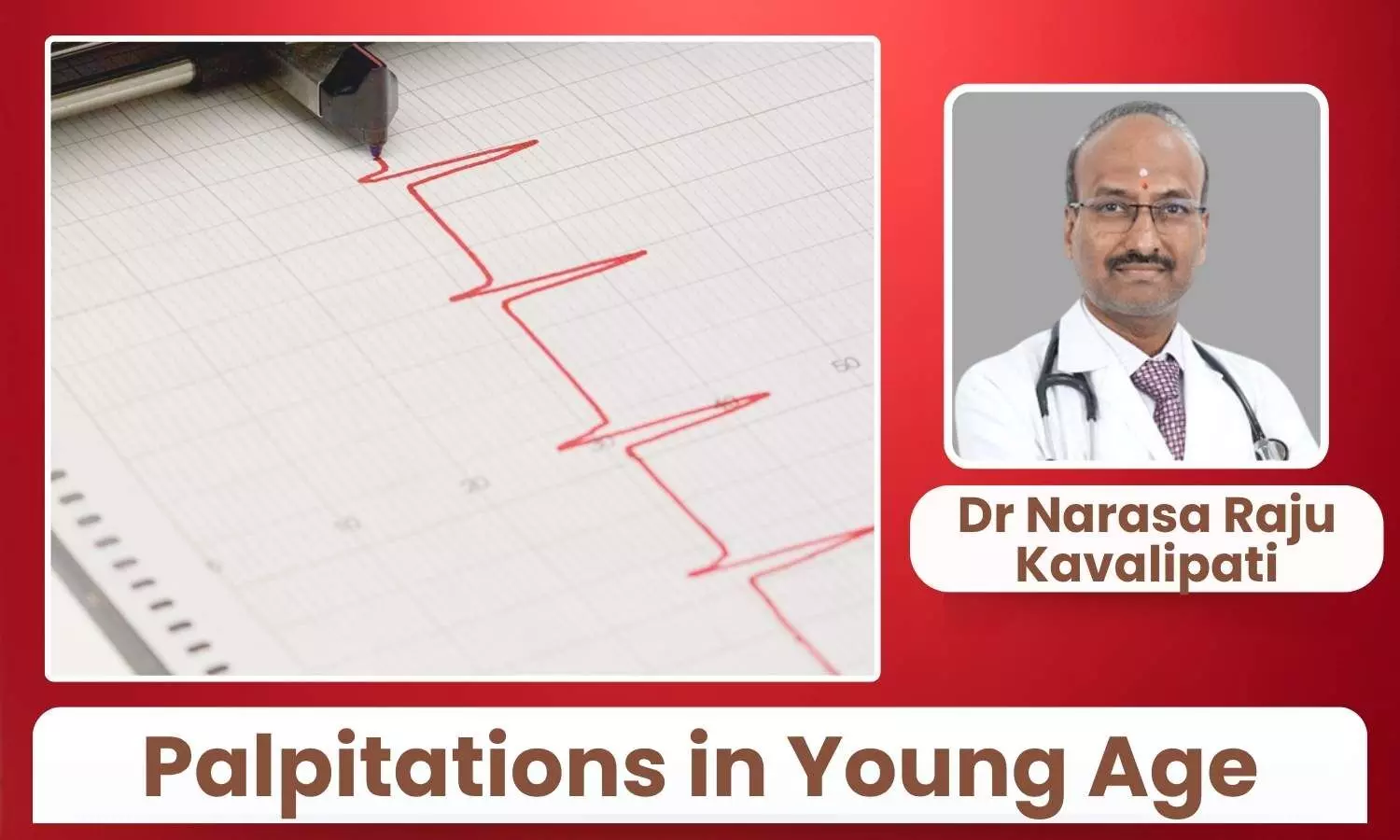Young and Breathless: When Should Palpitations in Your 20s Raise Concern? - Dr Narasa Raju Kavalipati

If you're in your 20s and suddenly aware of your heartbeat racing or fluttering without warning, you're not alone. It's something I often hear in clinics: “My heart just started pounding out of nowhere, should I be worried?”
Palpitations, that odd feeling of your heart skipping, thudding, or speeding up, can be unsettling, especially when they happen at rest or during everyday moments. Most times, they are harmless. But not always. Knowing when to pause and pay attention is important.
What Do Palpitations Feel Like?
Palpitations aren’t a disease, they’re a symptom. They may feel like your heart is beating too fast, too hard, or irregularly. Some describe it as a flutter in the chest. Others feel it like a sudden thump or a missed beat. These sensations may last seconds or minutes and can sometimes be accompanied by breathlessness, dizziness, or fatigue.
In young adults, especially those without underlying heart disease, palpitations are often triggered by lifestyle factors, stress, dehydration, poor sleep, or stimulants. Still, it’s important not to dismiss them too casually.
What Often Causes Palpitations in the Young?
Here are some of the most common (and usually harmless) reasons I see:
- Caffeine and Energy Drinks: A major culprit. High doses of caffeine, especially from pre-workout mixes or strong coffee, can trigger a racing heart.
- Lack of Sleep: Chronic sleep deprivation can disrupt heart rhythm and raise adrenaline levels.
- Anxiety or Panic Episodes: Emotional stress can mimic heart symptoms, including palpitations and breathlessness.
- Skipping Meals: Low blood sugar or electrolyte imbalances can also interfere with normal rhythm.
- Hormonal Changes: Particularly in women, fluctuations during the menstrual cycle or conditions like PCOS can occasionally lead to noticeable palpitations.
In these scenarios, palpitations usually settle down with rest, hydration, or dietary adjustments. But when they don’t, further evaluation is wise.
When Should You Be Concerned?
There are some symptoms that I advise patients never to ignore:
- Palpitations that are recurrent, frequent, or last longer than a few minutes
- Associated chest pain, dizziness, or fainting
- A history of heart disease or a family history of sudden cardiac events
- Palpitations that occur during sleep or while lying down
- An unusual or irregular rhythm picked up on smartwatches or fitness trackers
These could point to a more serious rhythm disturbance, like supraventricular tachycardia (SVT), atrial fibrillation, or — in rare cases — inherited arrhythmias.
What Will Your Doctor Check?
When someone comes in with persistent palpitations, the first step is a thorough conversation, what triggers it, how often it occurs, what else is going on at the time. Then come basic investigations:
- ECG (Electrocardiogram): A quick test to record the heart's rhythm
- Holter Monitor: A 24-hour ECG to track irregular rhythms that come and go
- Echocardiogram: An ultrasound to rule out structural problems
- Blood tests: To check for anaemia, thyroid disorders, or electrolyte disturbances
For many young adults, these tests turn up normal, and that’s a good thing. But it also helps rule out dangerous causes and bring peace of mind.
Are Smartwatches Reliable?
Fitness watches can be helpful for tracking trends, like an elevated resting heart rate, but they’re not a replacement for medical-grade ECGs. Many times, I’ve had patients come in panicked by an alert that turned out to be nothing serious. That said, if your device regularly shows erratic heart patterns, it’s worth a review.
What You Can Do
If your palpitations are mild and linked to lifestyle factors, small changes can make a real difference:
- Cut back on caffeine, especially energy drinks
- Stay hydrated and eat on time
- Don’t skip sleep
- Try breathing exercises or yoga to manage stress
- Limit alcohol and tobacco, which can irritate the heart's rhythm
Often, awareness alone can reduce the frequency of episodes. But if something feels off, trust your instincts. It’s better to check early than to assume it’s nothing.
Palpitations aren’t always a cause for alarm, but they’re never worth ignoring. Especially when they come with breathlessness, dizziness, or chest discomfort. Your twenties are a time when the body is resilient, but that doesn’t mean it’s invincible.
If your heart is trying to get your attention, listen. Getting evaluated doesn’t mean you’ll walk out with a serious diagnosis. In most cases, you’ll walk out with answers, and that in itself is reassuring.


